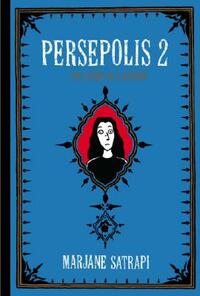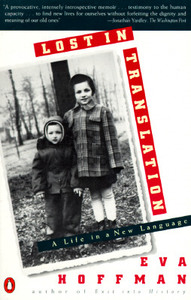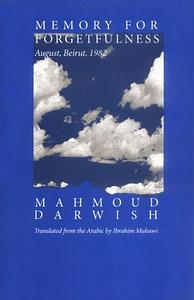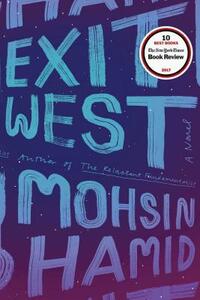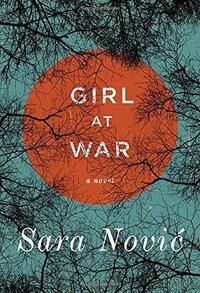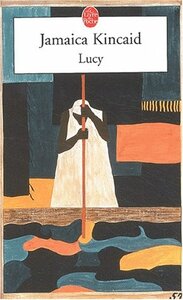Take a photo of a barcode or cover
blurstoftimes's Reviews (61)
Something wholly unique. Brilliant, insightful, political (but not polemic), and downright entertaining.
“Nothing worse than saying goodbye. It’s a little like dying.”
“Nothing worse than saying goodbye. It’s a little like dying.”
The perfect continuation! Satrapi’s story is simply too delightful to put on pause.
3.5 really.
Milosz is a powerful poet and deft storyteller, but some of the content here is really lacking in terms of propulsion and significance. I am particularly bothered by the overt preachy overtones—when you’re writing poetry about religion, that has to be the hugest literary sin you can make.
However, I like the interior aspects of Second Space: the dubious offset to our earthly experience and the questions that makes us ask ourselves: mainly, what next after life?
Part 1 was my favorite because of how it organized thoughts on memory, exile, destructive history, and surviving the war.
Part 2 has its strong points when touching on the crux of piety in a sinful world (seen here ostensibly through the eyes of a Roman Saint).
Part 3 is mostly cryptic and babbling, but it is readable and engaging for those who wish to read of Milosz’ many thoughts on theology. I was turned off many times.
Part 4 is quicksand substituting for textual potency. Leave immediately.
Part 5 is fine. A decent end encapsulated through one of the most renowned stories ever. This was the last piece he would write before his death.
I love Milosz but this probably was not the best place to start with him. I’ll do The Captive Mind next.
Milosz is a powerful poet and deft storyteller, but some of the content here is really lacking in terms of propulsion and significance. I am particularly bothered by the overt preachy overtones—when you’re writing poetry about religion, that has to be the hugest literary sin you can make.
However, I like the interior aspects of Second Space: the dubious offset to our earthly experience and the questions that makes us ask ourselves: mainly, what next after life?
Part 1 was my favorite because of how it organized thoughts on memory, exile, destructive history, and surviving the war.
Part 2 has its strong points when touching on the crux of piety in a sinful world (seen here ostensibly through the eyes of a Roman Saint).
Part 3 is mostly cryptic and babbling, but it is readable and engaging for those who wish to read of Milosz’ many thoughts on theology. I was turned off many times.
Part 4 is quicksand substituting for textual potency. Leave immediately.
Part 5 is fine. A decent end encapsulated through one of the most renowned stories ever. This was the last piece he would write before his death.
I love Milosz but this probably was not the best place to start with him. I’ll do The Captive Mind next.
More accurately a 3.7
Darwish’s prose is some of the most powerful and erudite I’ve ever read. This book in its totality is a formidable manifesto of anti-war ideals. But what it is truly about is displacement: the infamous exile of the Palestinians in Beirut and how the Israelis worked to extinguish the Arabs during the 1982 Siege of Lebanon
For this reason and more, this book becomes exhausting rather quickly. While Darwish is exceptionally wise and strings together hauntingly beautiful lines of phantasmagorical poetry, staying with it for too long can become arduous.
This is a book that you really have to be patient with. Reading it in my Literature of Exile class allowed me the proper academic space to learn more about what Darwish meant by motifs like “the sea.”
An entire book of prose poetry is intimidating enough, but reading recurring statements about constant bombings with exponential causalities and the disappearance of a sense of self within the writer becomes an elegiac, often illogical, journey into disharmony and reverie; the result of this can either be enlightenment or nausea for the reader.
Still, this is a book worth reading. You just have to wrestle with it a bit.
Darwish’s prose is some of the most powerful and erudite I’ve ever read. This book in its totality is a formidable manifesto of anti-war ideals. But what it is truly about is displacement: the infamous exile of the Palestinians in Beirut and how the Israelis worked to extinguish the Arabs during the 1982 Siege of Lebanon
For this reason and more, this book becomes exhausting rather quickly. While Darwish is exceptionally wise and strings together hauntingly beautiful lines of phantasmagorical poetry, staying with it for too long can become arduous.
This is a book that you really have to be patient with. Reading it in my Literature of Exile class allowed me the proper academic space to learn more about what Darwish meant by motifs like “the sea.”
An entire book of prose poetry is intimidating enough, but reading recurring statements about constant bombings with exponential causalities and the disappearance of a sense of self within the writer becomes an elegiac, often illogical, journey into disharmony and reverie; the result of this can either be enlightenment or nausea for the reader.
Still, this is a book worth reading. You just have to wrestle with it a bit.

